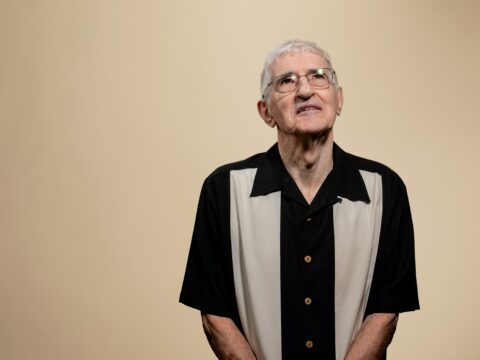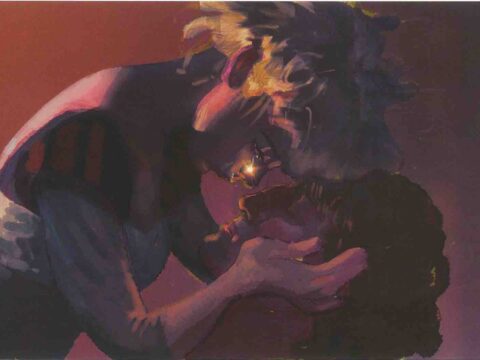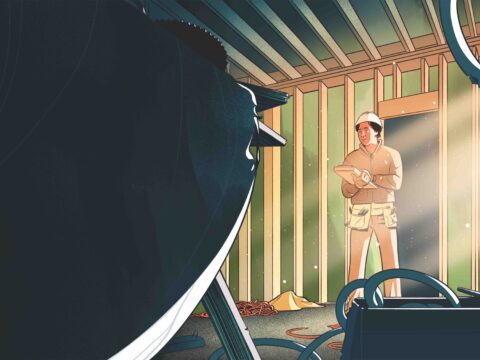In an era when the first response to any disagreement is to demonize the opposition — they’re not merely wrong, they’re evil — it shouldn’t come as a surprise that so many popular TV shows feature demons. But these aren’t your standard-issue Hollywood demons: they don’t spin heads and spew pea soup. The fictional demon-du-jour is more of a demon-next-door in a trio of hit shows — ABC’s The Good Place, Netflix’s Lucifer and Amazon/BBC’s Good Omens — that present evildoers we can appreciate by casting them as neighbours, co-workers and friends.
On paper, not one of these shows looks like a hit. The Good Place builds many a plot out of the moral reasoning problems that put countless undergrads to sleep. Meanwhile, Lucifer and Good Omens require some knowledge of the Bible and Freud to get the jokes. All of that sounds a little too much like homework to qualify as entertainment.
But what these comedies do exceptionally well is use supposedly evil characters as a metaphor. The demons — and just who the real demons are is up for debate — represent all those people whose views and values we don’t like. Then the writers take us on playful adventures to see what happens when the virtuous “us” are forced to work with the oh-so-hypocritical “them.”
The Good Place opens with a hilariously unrepentant misanthrope named Eleanor Shellstrop, played by Kristen Bell, who arrives in the afterlife following a ridiculous accident. The self-described “dirtbag” meets Michael, a silver-haired dandy in a bow tie, played by a charming Ted Danson. He tells her he is the architect of this neighbourhood in “the Good Place,” the show’s all-inclusive term for heaven, and she made the cut due to her long resumé of good deeds on Earth.
More on Broadview: ‘The Good Place’ and ‘Russian Doll’ are quests for meaning in a secular age
Eleanor deduces there’s been a bureaucratic snafu: she knows she’s a horrible human being. Assuming the amiable Michael is the sort of dim-witted middle manager she manipulated on Earth, she begins scheming to outwit him and avoid relocation to “the Bad Place.” She enlists the help of another recent arrival, Chidi (William Jackson Harper), who was a moral philosophy professor in his previous life. He’s a neurotic bumbler, but he thinks that if he teaches Eleanor a little ethics she might be able to pass as good, or at least good enough to avoid hell. Hijinks ensue.
Eleanor and Chidi are joined by a narcissistic socialite and a petty criminal, and these four soon discover that Michael is really a demon who designed this artificial reality so they could torture each other just by being themselves.
The charm of the sitcom, aside from the clever writing, is watching these natural enemies become allies and then unlikely friends. By every measure — from race and class to education and intelligence — the four heroes are natural combatants in the culture wars. But as the satire progresses and the characters’ backstories are revealed, it becomes easier for them (and us) to feel compassion for this motley crew.
As he watches the humans learning to be better people, even the cheerfully immoral Michael develops a conscience. Inspired, the demon defects from the Bad Place to join them on the moral-improvement campaign to get into the real Good Place. More hijinks ensue.
Good Omens, based on the novel by Neil Gaiman and Terry Pratchett, is an over-the-top romp that tells the tale of an unlikely friendship between Crowley, a demon played by a hilarious, scenery-chewing David Tennant, and Aziraphale, a slightly more restrained angel played by Michael Sheen.

They’re both sent to Earth by their respective head offices to influence human affairs. But over millennia they become pals, often sharing work to save time in striking an earthly balance between good and evil. Eventually, they come to appreciate each other’s talents. And they share a growing fondness for Earth. When faced with a long-predicted Armageddon, they decide to defy their bosses and join forces to save the world. Impossibly complicated plot twists follow, but in the end, friendship saves the day.
In a meta-moment, this parody of extremist views became part of the real culture wars as critics argued that the show was little more than a sop to the politically correct. Among the grievances: actress Frances McDormand (a woman!) played the voice of God; Crowley and Aziraphale’s bromance was seen as a queer pairing; and traditionalists were outraged when Pollution replaced Pestilence as one of the Four Horsemen of the Apocalypse. Let’s just say the satire isn’t subtle.
But if there’s any show in this trio that cultivates a little sympathy for the devil, it’s Lucifer. The series, which will have a fifth and final season on Netflix this year, is based on another Neil Gaiman comic book, The Sandman.
The premise of Lucifer is that the devil’s behaviour is the result of his deeply dysfunctional family, but even he can be redeemed with patience, compassion and a lot of therapy.
In this version of the devil-next-door, Lucifer is bored with ruling hell so he moves to Los Angeles, a party town where he can carouse to his heart’s content. But even partying gets dull. So when the cops come calling on a murder investigation, he helps out, using his gift for persuading humans to reveal their deepest desires.
British actor Tom Ellis plays Lucifer Morningstar as a latter-day Cary Grant — all elegant charm, tailored suits and quick wit. But he’s also annoying. Particularly when whining to his therapist about how humanity has wronged him by blaming their worst deeds on the devil.
Is being virtuous different from merely giving the appearance of virtue?
This version of Satan turns him into the sort of narcissist who personifies every hot-button issue in daily life. He’s that awful employee with no respect for the dress code; he arrives at a crime scene straight from a three-day party. He’s the #MeToo guy in the office, lobbing double-entendres at the prim female detective forced to work with him. He drinks on the job. He’s promiscuous. And, as he’s a magical being who is irresistible to humans, can the men and women he seduces really be said to be consenting? Name a sacred cow: Lucifer barbecues it.
But over the course of the show, Lucifer grows increasingly sympathetic as he develops a conscience, while still indulging his wild ways. He begins to reconcile with his self-righteous celestial family. He makes friends. He’s kind to his enemies. And after he finally finds the love of his eternal life, he sacrifices his own happiness to save humanity.
He’s a devil, yes, but it’s hard to argue he’s evil.
At their core, these comedies all examine what it means to be good in the sense of being truly moral. And they do it partly by exploring a question: is being virtuous different from merely giving the appearance of virtue? Only The Good Place arrives at something like a definitive answer when Michael suggests that it doesn’t matter much whether people are good or bad: “What matters is whether they’re trying to be better today than yesterday.”
Maybe that’s true. At least, it’s worth thinking about. So, consider all three shows shame-free binge-watching: you can tell your inner critic it’s not merely entertainment — you’re contemplating how to be a better person.
This essay first appeared in Broadview’s March 2020 issue with the title “Sympathy for the devil.”
Broadview is an award-winning progressive Christian magazine, featuring stories about spirituality, justice and ethical living. For more of our content, subscribe to the magazine today.















The problem with these shows, is that it presents Satan as fictional. One of the best defense Satan has against us is that he doesn’t exist, or that he’s some sort of buffoon.
Does he exist? If you believe Jesus existed, He stated: “I saw Satan fall like lightening from Heaven” Luke 10:18
Is he a buffoon? He quoted Scriptures to Jesus during His temptation period in the wilderness. Genesis 3:1 tells us he’s crafty. 2 Corinthians 2:11 “lest Satan should take advantage of us; for we are not ignorant of his devices.” (Why would we be ignorant of a buffoon?)
“When he lies, he speaks according to his own nature, for he is a liar and the father of lies” John 8:44. Would it be in his benefit from these shows, that doesn’t present Satan for who he is?
He’s an adversary who accuses Christians before God Revelation 12:10. He also disguises himself as an angel of light. 2 Corinthians 11:13-15
Fortunately for Christians – Hebrews 2:14: “Christ took on human nature that through death he might destroy him who has the power of death, that is, the devil.”
Spirituality shouldn’t be entertainment for us by any means.
The writers of these TV shows surely have read the book “How to craft Super Villains”. But these TV shows contain little wisdom of the insidious nature of evil. Hannah Arendt’s observations of Adolph Eichmann (an ordinary family man) will chill you to the bone if you consider yourself to be an ordinary family person. Eichmann was not redeemable because he chose not to be. Or read Melville’s Moby Dick- a novel of the evil possession of our good Captain Ahab’s soul. If you want a more psychological /spiritual 20th century account of evil consider reading Dr. M. Scott Peck’s book People of the Lie”. Many people have loved his book “The Road Less Traveled”. Fewer have traveled the lesser road about his chilling study of human and spiritual evil. There are many other sources one might recommend. These are easy reads and a good place to begin when you are ready to move beyond Hollywood.
Yes I admit it, I binge watched Lucifer, although I did take a break when Eve showed up as Lucifer’s, ostensibly , first girlfriend. Finding entertaining ways to engage young people on issues of values seems to be a broad interest of streaming channels. No doubt, Netflix et al understand our society better than any of us as they have so much data to analyze